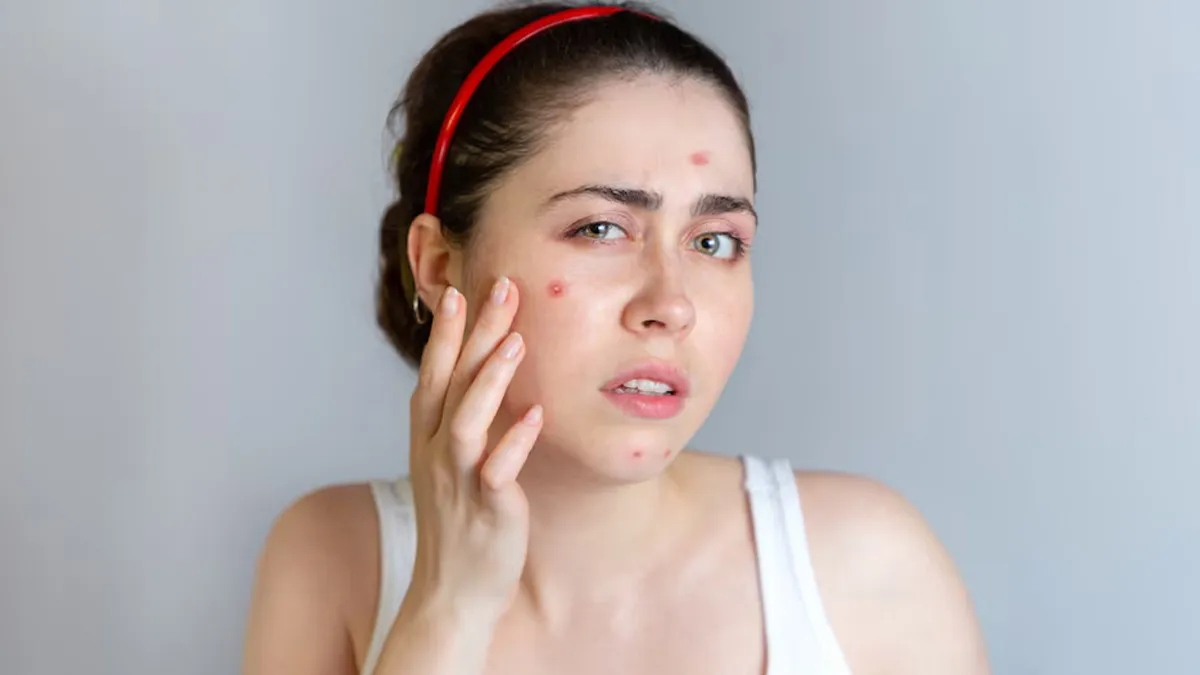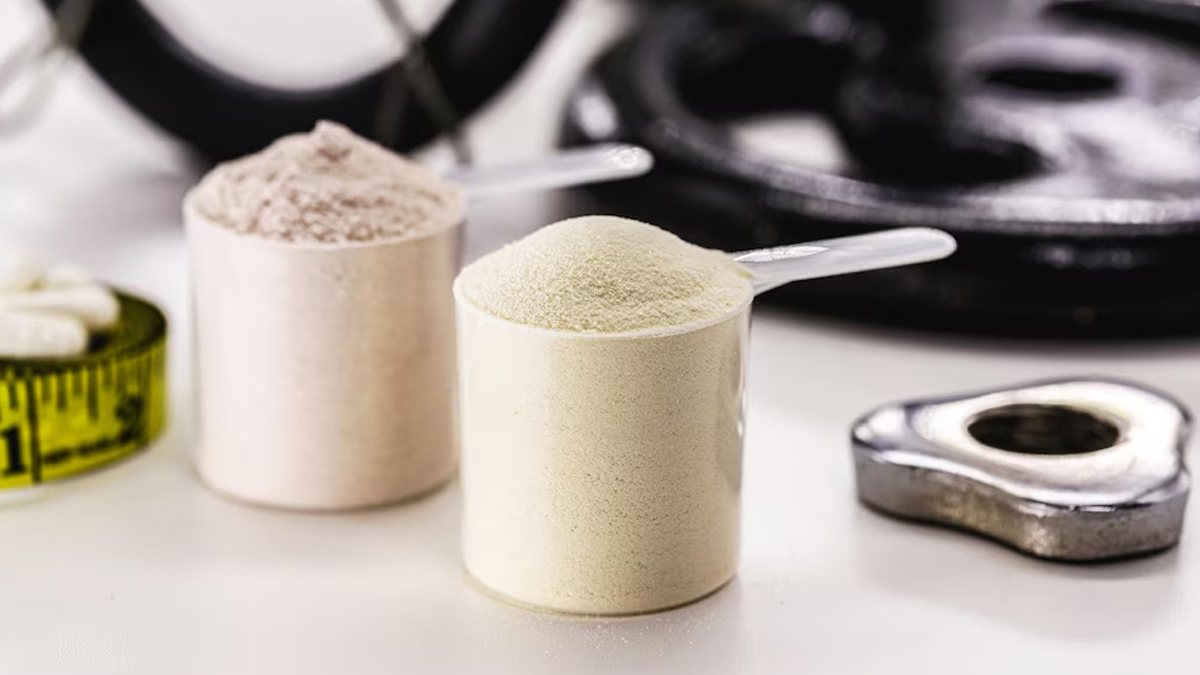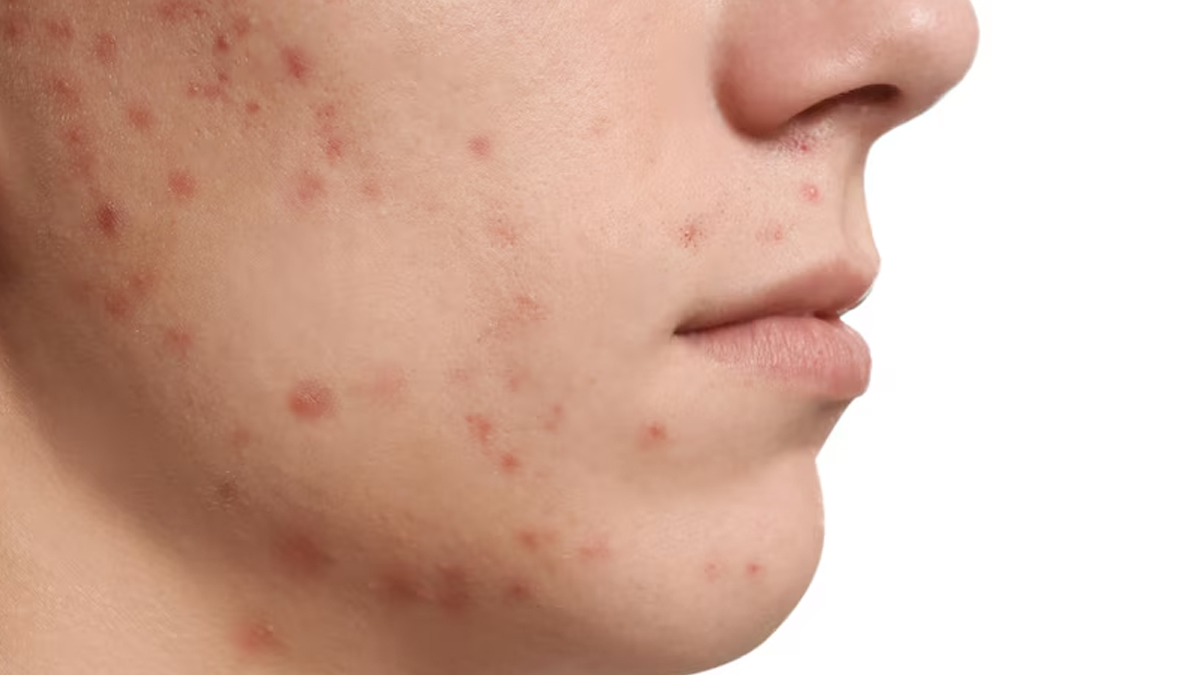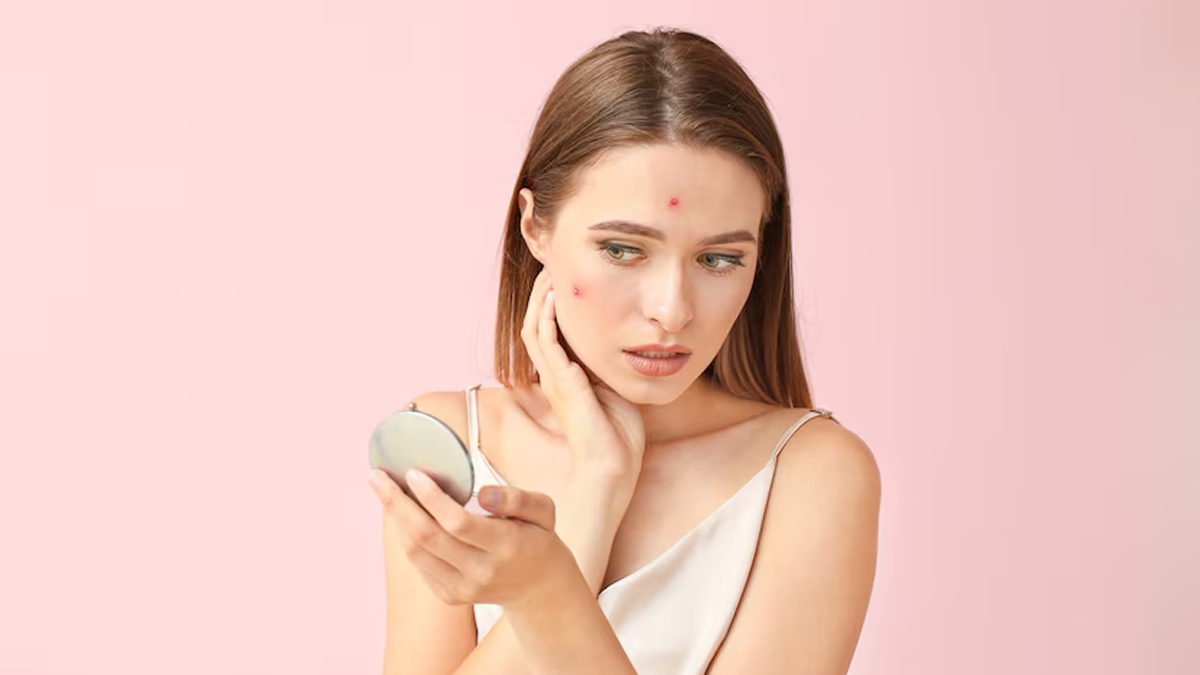
In recent years, protein supplements have gained popularity among fitness enthusiasts and bodybuilders looking to build muscle and improve performance. While these supplements can provide numerous benefits, such as increased muscle mass and improved recovery, they could also be behind an unexpected problem, acne.
Table of Content:-
To understand if protein supplements are the culprit behind acne, OnlyMyHealth team interacted with Dr Suby Kakkar, MBBS E Derma, PGDCC Department of Dermatology, Ujala Cygnus Group of Hospitals.
He said protein powders, particularly those made from milk, can be a potential trigger for acne. "If you're dealing with acne and can't figure out why, protein supplements could be the reason," says Dr Kakkar. "Protein powders are widely used to increase muscle mass, but they can occasionally lead to acne or pimples."

The connection between protein supplements and acne may stem from the way certain ingredients interact with your body. Many protein powders contain whey or casein, which are derived from milk. These dairy-based proteins can affect hormone levels, specifically insulin-like growth factor 1 (IGF-1), which has been linked to acne development. Increased IGF-1 levels may cause the sebaceous glands in the skin to produce more oil, leading to clogged pores and acne.
But it's not just milk-based protein powders that can contribute to acne. Dr Kakkar notes that other supplements commonly used for muscle building, such as those containing high levels of vitamins like B6 and B12, or iodine, can also cause skin problems. "Other popular supplements, like products for building muscle, vitamins (B6 and B12) in large amounts, and supplements with a lot of iodine, have also been connected to acne breakouts," explains Dr Kakkar.
Also read: How Your Protein Needs Change With Age: How To Get Optimum Levels
How to Tell if Protein Supplements Are Causing Acne

If you suspect that a protein supplement is causing your acne, Dr Kakkar advises you to stop using the product and observe any changes in your skin. "The first thing to do is stop taking it and see if your skin gets better. Many people find that their acne clears up after they stop using the supplement," he says. However, it’s essential to consult a healthcare professional before making any drastic changes, especially if you rely on the supplement for health or fitness purposes.
Remember, not everyone will experience the same effects from protein supplements. Dr Kakkar emphasises that genetics, diet, and lifestyle play a significant role in how your skin reacts to various products. "Not all protein supplements or other dietary products will affect everyone the same way," he adds. "What causes acne for one person may not affect someone else in the same way." Keeping track of your diet and supplement intake, and noting how your skin responds, can help pinpoint the cause of the problem.
Also read: Protein Supplements: Debunking The Top Myths
The Symptoms of Acne from Supplements

Acne related to supplements can manifest in various forms. It may appear as blackheads, whiteheads, or red, inflamed bumps. In some cases, pustules, small, pus-filled spots, may develop, while others might experience deeper, cystic acne, often on the chest, back, or jawline. "If you notice any of these symptoms after starting a new supplement, it could be a sign that your skin is reacting to it," advises Dr Kakkar.
If acne persists even after stopping the supplement, or if it becomes more severe, it's essential to seek professional help. Dermatologists can evaluate whether your supplements are contributing to the problem and provide the appropriate treatment options to clear your skin.
Conclusion
While protein supplements can be beneficial for muscle growth and recovery, they might also be the hidden culprit behind your acne issues. Dr Kakkar explains, “Some protein powders and other supplements can disrupt your hormone balance, leading to skin problems. If you suspect that your acne is linked to your supplement regimen, consider taking a break from them and observe any changes in your skin.”
It's important to remember that everyone's skin is different, and what causes acne in one person might not affect someone else. If acne persists or worsens, a consultation with a dermatologist is crucial to determine the cause and find the best treatment for your skin.
Also watch this video
How we keep this article up to date:
We work with experts and keep a close eye on the latest in health and wellness. Whenever there is a new research or helpful information, we update our articles with accurate and useful advice.
Current Version